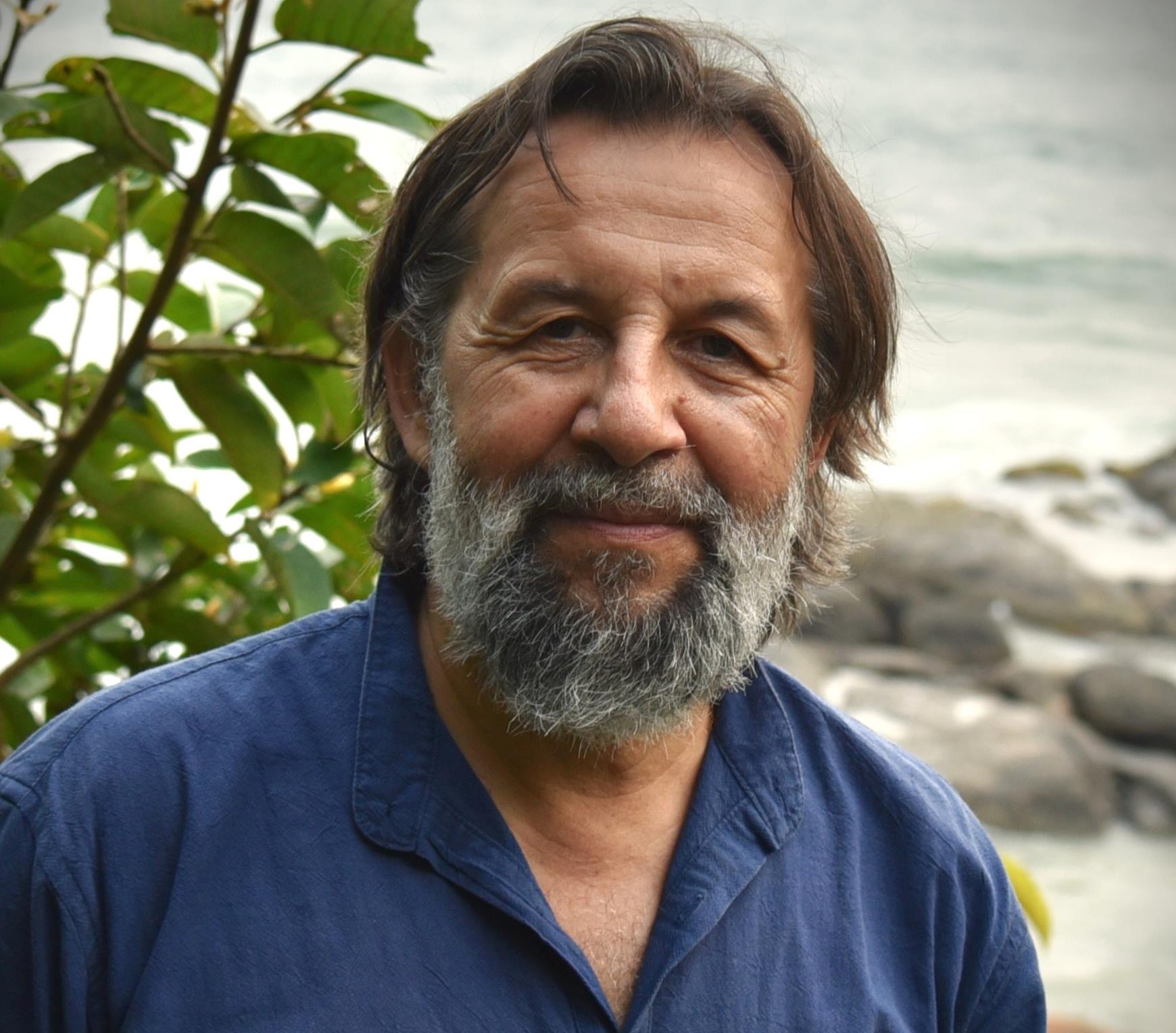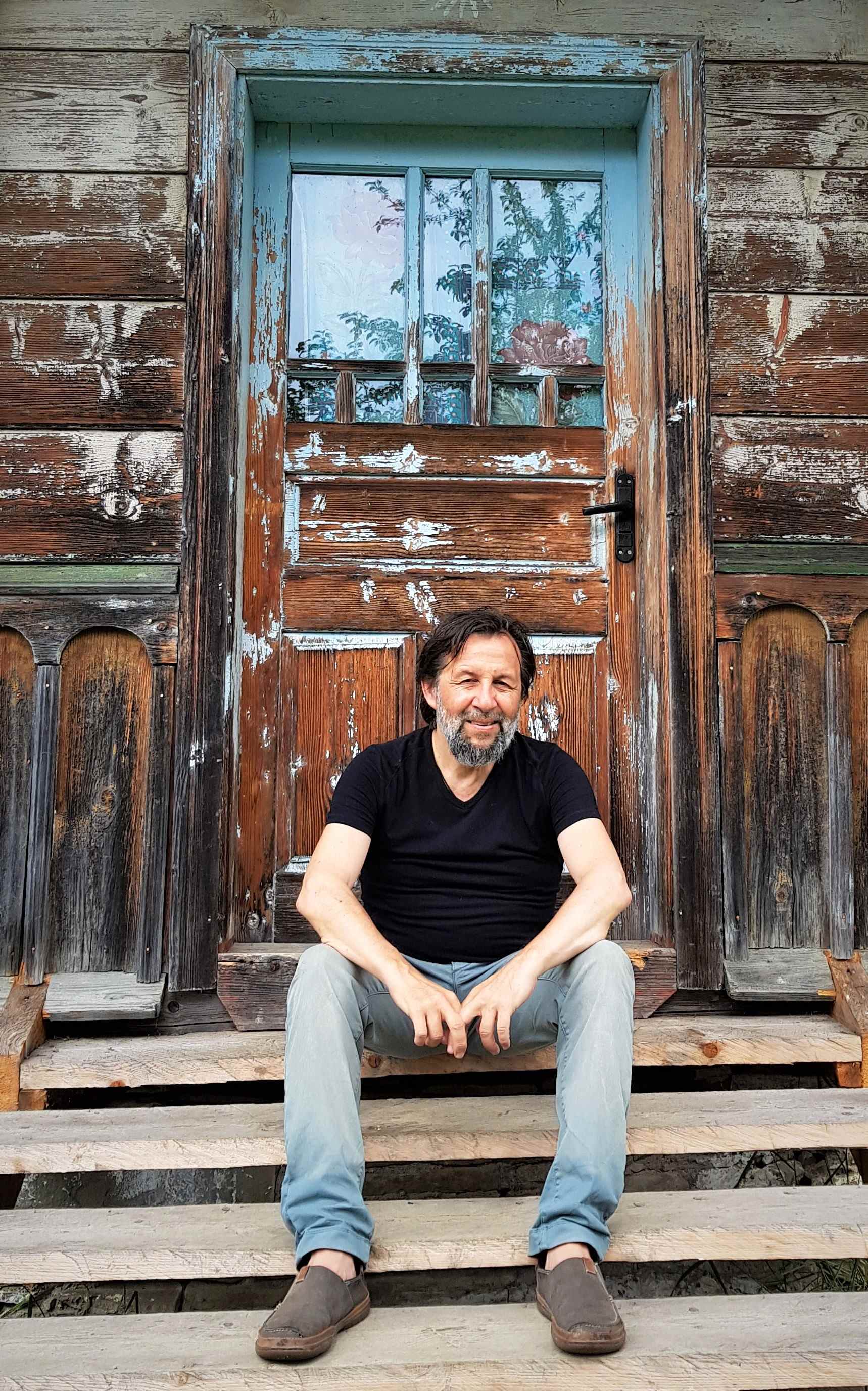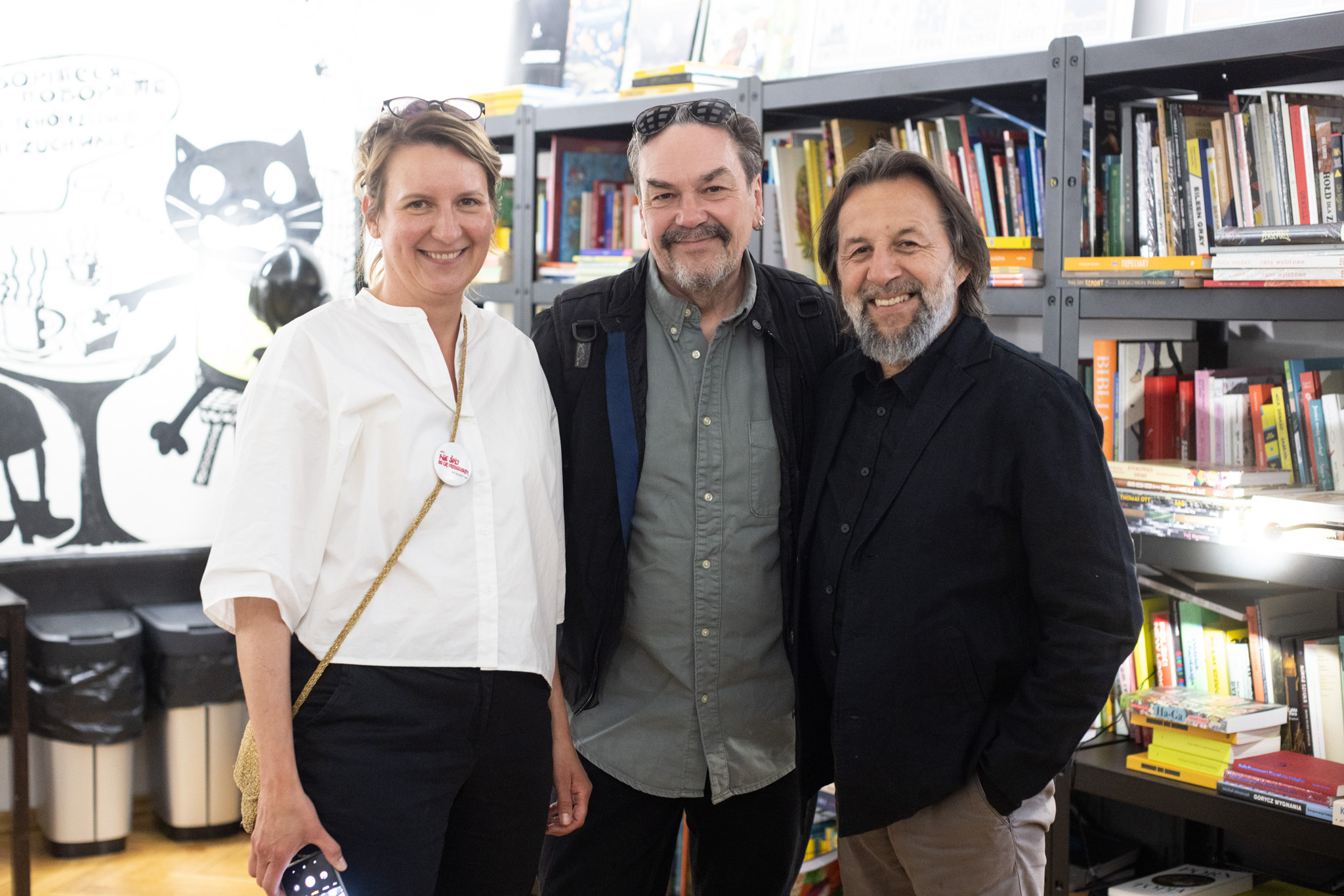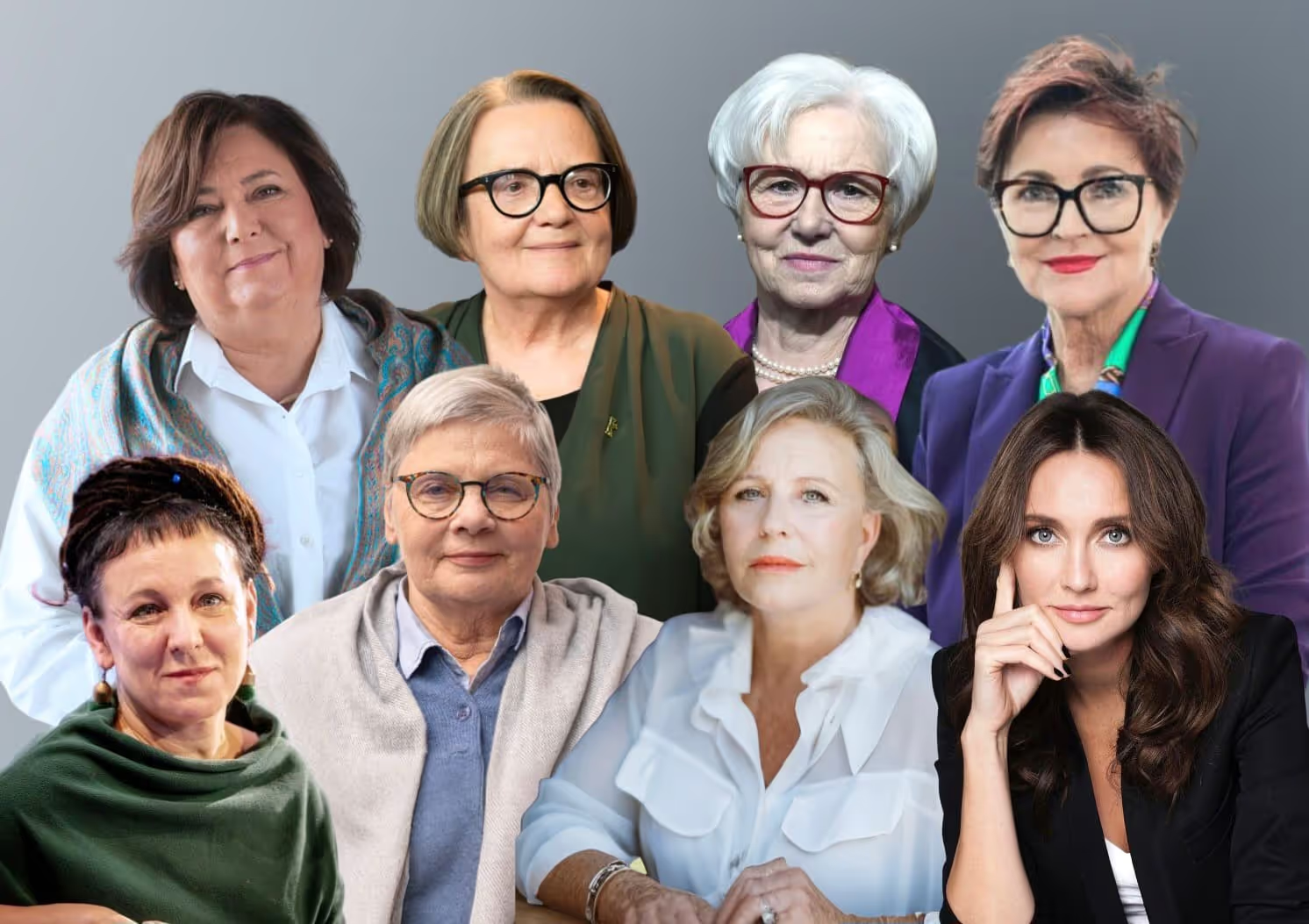Support Sestry
Even a small contribution to real journalism helps strengthen democracy. Join us, and together we will tell the world the inspiring stories of people fighting for freedom!
Sestry поговорили з трьома дівчатами, які перетворили свій талант на спосіб зібрати для української армії десятки тисяч гривень.
«Якщо виграю я — людина донатить»
— У 2022 році багато хто почав допомагати армії, — розповідає 13-річна Валерія Єжова, чемпіонка світу з шашок. — Мені теж захотілося долучитися. Я спитала маму, як саме можу це робити. «Що ти вмієш робити найкраще?» — поставила мені правильне питання мама. Від нього ми відштовхнулись і поступово вийшли на ідею, що я можу збирати гроші для армії, граючи у шашки.
Суть у тому, що я сідаю на вулиці і граю в шашки з усіма бажаючими. Якщо людина у мене виграє, то може не донатити (хоча таких, хто не донатив, ще не було). Якщо ж перемагаю я, людина має покласти суму від 1 гривні.

Ми довго думали, з чого почати. Треба було знайти локацію, де я могла б грати, не заважаючи іншим. Зрештою обрали місце біля супермаркету в Дарницькому районі Києва. Поставили там дитячі стільці, я сіла чекати. Мама пішла на закупи. До мене стали підходити, питати, цікавитися... Коли мама вийшла, біля мене вже була черга. У той день я зібрала близько 1200 гривень.
Звісно, бували ті, хто вигравав. Бо я за своє життя грала з майстрами спорту, кандидатами в майстри тощо. Але біля супермаркету, де я починала свій волонтерський шлях, у мене за весь час виграло 3-4 людини.
Далі було чимало інших місць. Наприклад, я грала у парку Шевченка. Найбільша сума, яку мені вдалося зібрати за один день, це близько 15 тисяч гривень.
За весь час моєї волонтерської гри я зібрала понад 220 тисяч гривень
Першу зібрану мною 21 тисячу я передала до фонду Сергія Притули. Я страшно хвилювалася, слова не могла вимовити. Сергій Притула давно мені подобається. Тому зустріч з ним була важливою. Коли він побачив, яку суму я, десятирічна, принесла, — розплакався. І обійняв мене.

— Як і чому ти стала грати саме в шашки? Які нагороди маєш?
— Я пішла займатися шашками, коли мені було 7. У нас тоді тільки відкрився новий гурток з шашок, захотілося спробувати. І це мене захопило.
У 2021 році я стала чемпіонкою світу серед дівчат до 10 років. Також у мене є три кубки з чемпіонату Європи за перше місце. П’ять років поспіль я ставала чемпіонкою Києва серед дівчат свого віку. Також я — неодноразова чемпіонка України, абсолютна чемпіонка Європи серед дівчат свого віку та чемпіонка світу 2023-24 з чекерсу серед юніорок (це дівчата до 19 років). Зараз граю у категорії «Дівчата від 13 до 16 років».
— Розкажи про свій найбільший особистий здобуток у цьому спорті?
— Важких партій було дуже багато. Але була одна, яка для мене стала особливою. Є гросмейстерка Олена Коротка. Вона — найсильніша шашкістка України. Я зіграла з нею на Чемпіонаті України серед дорослих у 2024 році внічию. І була дуже щасливою від цього результату. Зробити нічию з Оленою для мене — дуже почесно.
— Як ще шашки допомагають тобі в житті?
— Вони відволікають. Бо коли граєш, зосереджуєшся, прораховуєш кожен хід. Місця для поганих думок не залишається. Але іноді навпаки — це нерви. Іноді голова після гри болить, тиск підвищується. Хоча в цілому гра мене захоплює.
«Дружба з польською шашкісткою врятувала нашу перемогу»
— Вперше Валерія і Мая зустрілися на чемпіонаті світу 2021, — розповідає Любов Єжова, мама Лери, історію, яка сталась з її донькою на одному із змагань. — В останньому турі Лера грала з росіянкою. Від цієї партії залежало золото чемпіонату світу. У шашках грають два мікроматчі, результат загальний. І ось Лера перший мікроматч виграє, а другий грає внічию і кличе суддю, щоб той зафіксував загальний результат. І тут російська спортсменка каже судді, що не пам'ятає результат першого мікроматчу… Суддя збентежений. Хто ж виграв? Полька Мая Ридзь тоді грала свою партію поруч і спостерігала за грою Валерії. Вона і допомогла довести, що саме Лера перемогла. За небайдужість Валерія подарувала Маї свою медаль з чемпіонату світу.
Коли почалася війна, Майя з мамою звернулися до польської шашкової федерації з проханням допомогти знайти інформацію, чи все добре з Лерою, чи ми в безпеці. Представник польської федерації розшукав мене у фейсбуці. Мама Маї запропонувала нам виїхати до них, але ми залишилися в Україні. Зараз бачимось на міжнародних змаганнях.

— З ким тобі, Валеріє, доводилося грати?
— Я грала багато з ким. Якщо говорити про відомих людей, то це Ектор Хіменос Браве, Володимир Остапчук, Вікторія Булітко, Єгор Крутоголов... Усіх не згадаю. Але вони у мене не вигравали. Багато грала з військовими. Часто це буває, коли я передаю їм свою допомогу.
— Як військові реагують на твою допомогу?
— Дякують. Часто приходять дружини військових і показують відео вдячності від їхніх чоловіків на фронті. Часто плачуть. Пам'ятаю, зустрічалася з військовим Олексієм Притулою, лікарем-ветеринаром із Одеси. Він у вересні 2022 року під час наступу на Лиман отримав важке поранення і втратив обидві ноги. Я збирала гроші йому на лікування. Після того, як йому поставили протези, ми зустрілися. Він подарував мені красивий букет квітів. Попри всі випробування, він дуже світла людина. Також мене нагороджували медаллю військові 28 ОМБр (окрема механізована бригада. — Авт.). Командир, який мені передавав медаль, згодом загинув, намагаючись врятувати побратима. Тож ця нагорода для мене вдвічі важлива.
Хочеться вірити, що мої гроші (хоч вони і невеликі) комусь допоможуть
— Які найяскравіші моменти зі збору коштів запам’яталися?
— Як хлопці на вулиці збирали й приносили копійки, тільки б зі мною пограти — по 50 копійок, по гривні. Кожен день прибігали до того супермаркету, де я грала. Потім просили, щоб я їх навчила.

— Ти продовжуєш грати і збирати зараз?
— Так! Біля супермаркету грала дуже часто. Улітку кожен день, в інші сезони — на вихідних. Там мене вже знають. Працівники, адміністратор. Навіть гарячі обіди виносили. Зараз вже частіше граю на благодійних заходах. Мене запрошують — я погоджуюся. Там набагато більше людей, а це означає, що можна зібрати більше грошей на потреби армії. Мій спосіб працює, тож буду продовжувати.
— Про що мрієш?
— Найголовніше — щоб скоріше закінчилась війна. Думаю, це мрія кожного українця зараз. А щодо особистої мрії — хочу побачитися з Лесею Нікітюк. І, звичайно, прагну стати чемпіонкою світу. Буду тренуватись, аби досягти цього.
«Листівка з насінням, яке проростає, — це мій донат»
— У себе в інстаграмі ти пишеш «Шаную минуле, не цураюся сучасного, творю майбутнє. Несу традиції свого роду». Розкажи, чим саме ти допомагаєш армії.
— Мені 11 років, я з міста Славута, допомагаю військовим від початку повномасштабної війни, — розповідає 11-річна Соломія Дебопре, етноблогерка, яка робить незвичайні листівки й свічки, збираючи на армію. — Спочатку в нашому місцевому Центрі для волонтерів ми всією родиною плели сітки, збирали одяг, готували їжу. Коли для мене там стало менше роботи, почала робити власні листівки й свічки.

Мої листівки зроблені власноруч — від паперу до оздоблення. Для виготовлення паперу я маю спеціальні інструменти. Роблю його з перероблених зошитів, упаковок, різного залишкового паперового сміття. У спеціальному ситі формую, додаю насіння, яке потім може прорости. Цій техніці я навчилась в українського майстра в Естонії, коли була в Таллінні на фестивалі разом із фольклорним гуртом, в якому співаю. Кілька разів на рік ми їздимо за кордон, співаємо українські пісні, розповідаємо про нашу культуру, беремо участь у ярмарках, де продаємо вироби українських майстрів. І коли я потрапила до паперової майстерні, мене це так вразило, що я теж захотіла таке робити.
Свої перші листівки я просто дарувала військовим. Писала: «Сійте квіти на визволеній землі»
— Яку найбільшу суму вдалося зібрати?
— 18 тисяч за один раз. Кожного місяця я заробляю 5-7 тисяч гривень. І усі ці гроші передаю військовим. Іноді це друзі батьків, іноді рідні, іноді мої підписники, яких я добре знаю. Якось я збирала для свого дядька Романа. Ще допомагала нашому місцевому художнику. Він мені робив форми для свічок. У нього на війні загинув брат. Потрібна була автівка, щоб перевезти тіло. Я долучилася до збору.

— Як військові реагують на твою допомогу?
— Часто мені записують відео зі словами вдячності. Іноді присилають маленькі подаруночки: прапори частин, шеврони тощо. Колись військовий подарував мені великий снаряд. Нам його привезли прям додому і ми залишили його на подвір'ї. А татові про це сказати забули. Так от він вийшов на вулицю, побачив його і злякався — подумав, що то бойовий снаряд впав просто біля нашого дому. Думаю тепер розмалювати цей снаряд і розіграти за донат.
Часто у себе в інстаграмі роблю різні конкурси, розіграші, долучаюся до лотерей, де можна за донат щось придбати. І в мене вже є своя аудиторія, яка підтримує всі мої збори.
— Яка твоя мрія?
— Щоб скоріше закінчилась війна. А ще коли я виросту, хочу відкрити кав'ярню і продавати там свої свічки й листівки.

Картини, що змушують плакати
— Моє волонтерство почалося ще в 2014 році, — розповідає 16-річна художниця Аліна Стебло. — Так сталося через моє виховання — мені прищеплювали любов до України і вчили, що за волю ми завжди боролися і будемо боротися, якщо доведеться. А також ми маємо допомагати тим, хто виборює нашу свободу. Так, на нашому Майдані у Хмельницькому я була, ще коли в дитячий садочок ходила. А коли в 2014 році почалась війна, стала малювати листівки пораненим.
Спочатку допомагала у громадській організації «Захист — об’єднання волонтерів». Там ми збирали пайки для військових. За кілька тижнів цієї роботи зрозуміла, що можу робити й інше. А саме — малювати. Це у мене виходить набагато краще. І від початку повномасштабної війни я вже тільки малюю, бо це мій спосіб висловити свої емоції та переживання.
Після п'ятої картини, яка була подарована знайомим військовим, мама сказала: «А що це ми просто роздарюємо твої роботи? Давай їх на аукціони віддавати. Нехай приносять гроші». Так і зробили.

Також з іншими дітьми ми розмальовували списану амуніцію, яку потім теж передавали на аукціони. Я розписала близько 50 робіт. ГО «Захист — об’єднання волонтерів» знаходить для моїх картин аукціони.
Я не продаю свої картини, а виставляю їх на виставках і передаю волонтерам. Моя перша виставка називається «Війна, що нас змінила». У Хмельницькому я вже 4 рази її показувала, і щоразу ми збираємо на цих подіях донати.
Люди бачать у моїх роботах різне: і розпач, і біль, і надію. Часто говорили, що не вірять, що це роботи підлітка.
Було таке, що дорослі чоловіки стояли й плакали від того, що бачили у моїх картинах
Зараз я закінчую 11 клас, готуюся до іспитів, але все одно малюю. Мені пишуть волонтери з різних країн і просять мої роботи для аукціонів. Мої картини вже поїхали в Німеччину, Шотландію, Австрію, США (в багато різних штатів). На аукціонах за кордоном вони зібрали вже понад 140 тисяч гривень.
Коли я віддаю свої роботи, не думаю про те, скільки вони зберуть. Думаю про те, що вони принесуть.
— Як військові реагують на твою допомогу?
— Найкраща для мене подяка від військових — щоб вони були живі. Більше мені нічого від них не треба.

— Про що мрієш?
— Щоб скоріше закінчилася війна. Це трохи егоїстично, бо я хочу навчатися в Одесі на архітектора, але не можу туди поїхати, бо там небезпечно. Але я все одно стану архітектором, бо хочу після закінчення війни відбудовувати нашу країну.
— Що можна сказати дітям і дорослим, які теж хочуть допомагати, але не знають, з чого почати?
— Ви завжди можете прийти до будь-якого фонду чи громадської організації і сказати: «Хочу допомагати». Там швидко вирішать, у чому саме ви можете бути корисним.
Немає віку, з якого можна починати бути корисним. Просто робіть те, що вмієте найкраще
Фотографії: приватні архіви героїнь

A journalist, writer, videographer, content creator and podcast author. She has participated in social projects aimed at raising awareness about domestic violence. She has led her own social initiatives, ranging from entertainment projects to a documentary film about an inclusive theatre, which she independently authored and edited. At «Hromadske Radio», she created podcasts, photo reports and video stories. Since the full-scale invasion of Ukraine, she has begun collaborating with international publications, attending conferences and meetings across Europe to share insights about the war in Ukraine and journalism during these challenging times.












.avif)





